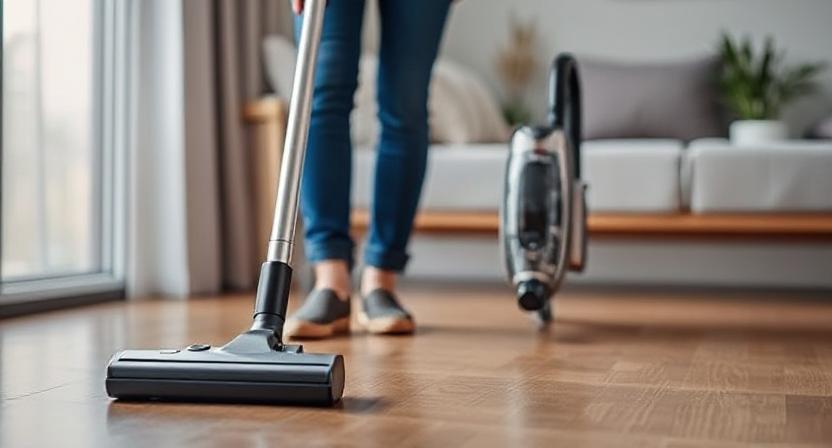Home vacuum cleaners are fast becoming must-have appliances in India—streamlining cleaning routines, improving indoor hygiene, and fitting into modern, busy lifestyles.
Market Growth & Consumer Trends
India’s vacuum cleaner market is booming:
-
Market value stood at USD 824.8 million in 2023, projected to hit USD 1,793.1 million by 2030, growing at a CAGR of 11.7%.
-
The India wet & dry vacuum segment is also rising—from USD 17.64 million in 2025 to an estimated USD 29.28 million by 2033 (CAGR 6.54%).
-
Robotic vacuum cleaners are surging—with Indian revenue expected to climb from USD 183.7 million in 2021 to USD 1,362.9 million by 2030 (CAGR 24.9%).
-
In the short term, robotic and wet-dry cleaners priced under ₹25,000 have seen 20–25% year-on-year sales growth in India.
Why Indians Are Switching to Vacuum Cleaners
-
Frequent cleaning is already the norm: A survey showed that 2 in 3 Indians clean their homes 5–7 times a week, among the highest in Southeast Asia.
-
Traditional mopping can spread dirt: Dyson’s 2025 study revealed that not changing cleaning water between rooms may make floors dirtier—even though Indians clean floors daily.
-
Busy lifestyles demand convenience: Cordless, robotic, and multi-function vacuum cleaners address time constraints and minimised human effort.
Types of Vacuum Cleaners: Pros & Cons
| Type | Pros | Cons |
|---|---|---|
| Canister | Strong suction, great for corners & stairs | Managing hose and power cord |
| Stick / Cordless | Lightweight, compact, easy storage | Shorter runtime, less suction |
| Robotic | Hands-free cleaning, programmable, best for daily use | May miss edges, pricier options |
| Wet & Dry | Cleans spills and dust in one pass | Usually heavier; cordless variants cost more |
A canister vacuum remains popular in India for its power and flexibility, while robotic and wet-dry models adapt well to modern urban lifestyles.
How to Pick the Right Vacuum Cleaner
-
Focus on real user needs (search intent)—for example: “best vacuum cleaners for pet hair” or “wet dry vacuum cleaners for tile floors” are long-tail keywords that convert better.
-
Look for HEPA filters, especially HEPA 12 or 13, to trap fine pollutants and allergens—great for urban Indian homes .
-
Mobility matters—cordless and lightweight options suit small flats and frequent quick clean-ups.
-
Smart features: app control, Alexa/Google Home integration, and sensor-driven navigation boost convenience.
-
Budget-friendly models under ₹25,000 offer a sweet spot between affordability and automation.
-
Consider long-term ROI—factors like multi-surface capability, washability, easy maintenance, and energy efficiency matter.
Real Examples in Indian Lives
-
Pet owner convenience: A Golden Retriever owner uses a robotic dry-mopping cleaner twice a day to manage fur—with human help weekly for corners.
-
Busy households: Many users in Pune choose robotic cleaners priced ₹15,000–₹20,000 for daily upkeep while juggling work.
-
Traditional methods falling short: Indian households clean frequently, but mop techniques may be counterproductive.
Conclusion & Call to Action
In India’s fast-paced homes, vacuum cleaners deliver clean, hassle-free living with improved hygiene and less time spent cleaning. Whether you want powerful canister models, sleek cordless sticks, efficient wet-dry appliances, or smart robotic cleaners—you’ll find a perfect fit for your needs and budget.
Ready to transform your cleaning routine? Compare features, read user reviews, and pick a vacuum cleaner that suits your lifestyle—your floors (and time!) will thank you.
Let me know if you’d like specific model suggestions or a comparison table next!










